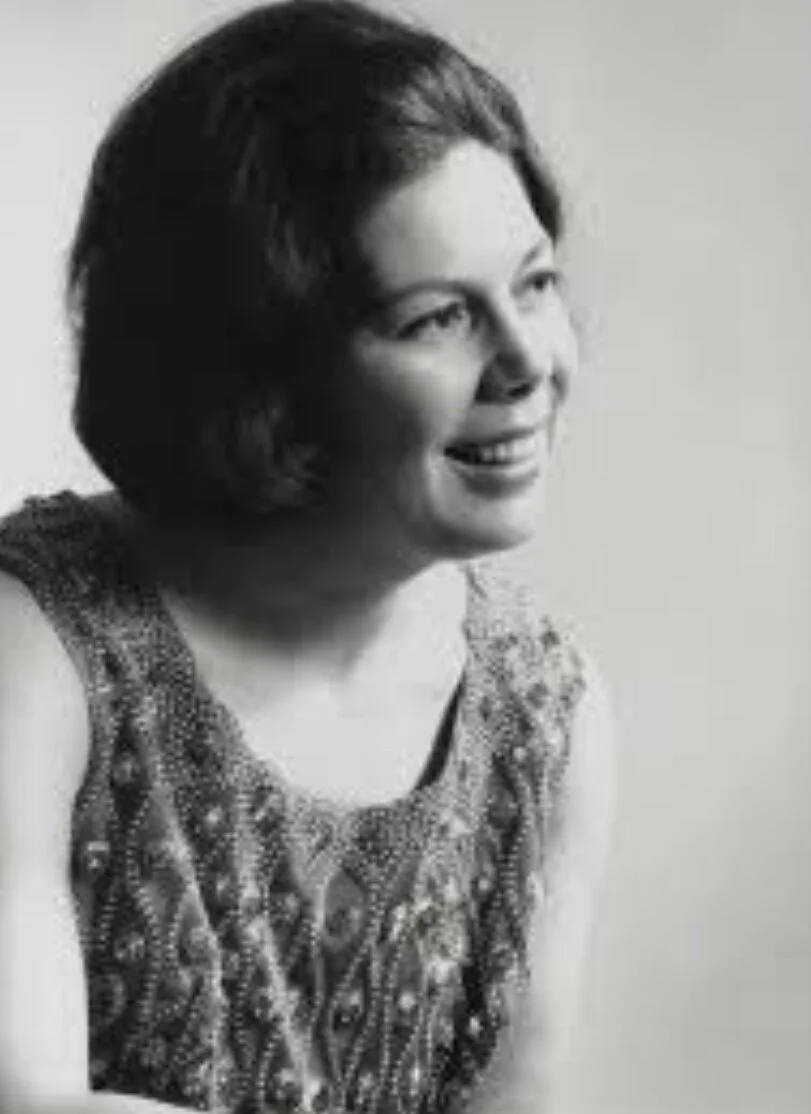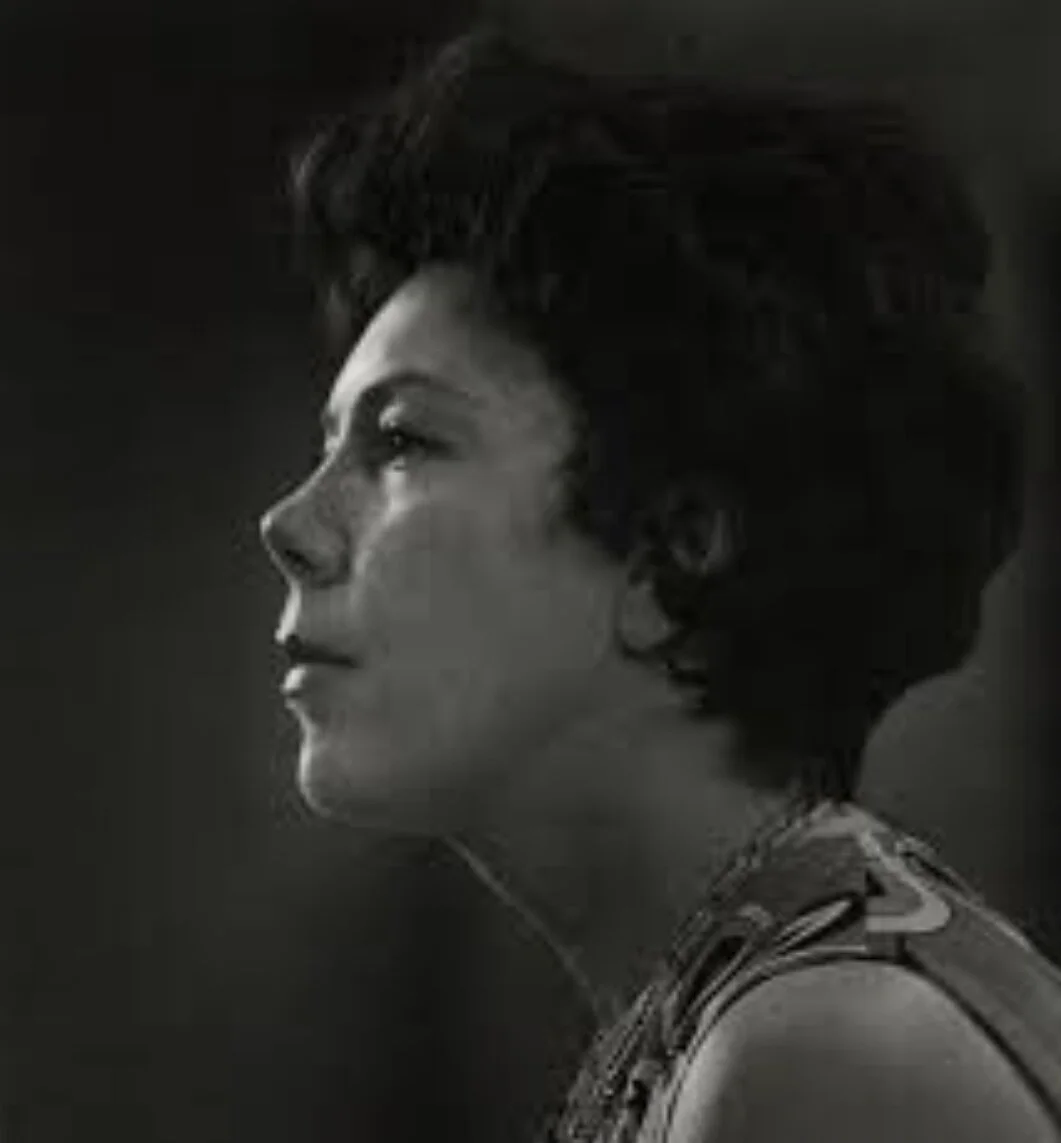Janet Baker: A Calendar of Song: For the Eighth Day of Christmas
Janet Baker (b.1933) is a thoroughly imperfect artist: there are many recordings by her I don’t begin to enjoy (just about all her Schubert lieder, for starters), and others where I love her despite her not being able to sing all the music satisfactorily. As I mentioned in an earlier missive, she’s a prime example of the British contralto/mezzo-soprano without a chest register. She was often praised for her diction, but, like Callas, her diction wasn’t always good (though usually it certainly was).
A few years ago, I had lunch with the opera director John Copley, who staged so many of the great productions of my youth. I mentioned both Heather Harper and Janet Baker on equal terms: the two women were contemporaries, both protégées of Benjamin Britten, often sang together for maestri from Otto Klemperer and Carlo Maria Giulini to George Solti and Britten, and Copley directed them both in leading roles. In some ways, Harper could sing Baker out of earshot: she had the kind of top and bottom Baker lacked, a vaster repertory, and qualities of both vehemence and force that thrill me. But Copley quickly put his finger on the factor that made Baker singular: “imagination.”
Some music she transformed with new insights: you always miss her in certain passages. But there were scores that she seemed to approach differently every season. Two of the FT’s music critics, Max Loppert and Richard Fairman, both told me how they excited they would feel before a Baker performance of Berlioz’s Les Nuits d’été: “How will she sing it this time?” I missed her in that, alas. But I saw her three seasons running (1974, 1975, 1976) as Vitellia in La Clemenza di Tito: a perfect example of a role for which she lacked both the vocal top (she omitted the top D flat in the first act trio) and the vocal bottom, as well as the character’s mordant cruelty and furious ambition - and yet she not only made it a great event at every performance, she reinterpreted the role each season with new physicality and new psychological complexity.
Still, there have been other singers with imagination. The word I would add for her is “philosophy”; or perhaps I should call it "spiritual refinement", something for which the dance critic Edwin Denby singled out the British ballerina Alicia Markova above all others in the early 1940s when she was at her peak. Baker could sing with phenomenal physical stillness; she sometimes matched that with a very rare kind of inward calm. Although I thought she was generally overrated in the title role of Handel’s Julius Caesar, I wish I’d seen her perform it more than three times simply for the contemplative passage on Pompey’s grave, sung with a quiet that drew the whole theatre into her thoughts about life and death.
And so to “Ich bin der West abhanden gekommen” from Mahler’s Rückert lieder, the version she recorded with John Barbirolli in 1969, the year before his death. This is a recording so famous for many that it’s almost hard actually to hear it again because it’s overlaid with the memories of previous listenings:-
https://www.youtube.com/watch?v=20YsQ2-B7sM
Ich bin der Welt abhanden gekommen (G. Mahler)
Friedrich Rückert
I am lost to the world
English Translation © Richard Stokes
Ich bin der Welt abhanden gekommen,
Mit der ich sonst viele Zeit verdorben,
Sie hat so lange nichts von mir vernommen,
Sie mag wohl glauben, ich sei gestorben!
I am lost to the world
with which I used to waste much time;
It has for so long known nothing of me,
it may well believe that I am dead.
Es ist mir auch gar nichts daran gelegen,
Ob sie mich für gestorben hält,
Ich kann auch gar nichts sagen dagegen,
Denn wirklich bin ich gestorben der Welt.
Nor am I at all concerned
if it should think that I am dead.
Nor can I deny it,
for truly I am dead to the world.
Ich bin gestorben dem Weltgetümmel,
Und ruh’ in einem stillen Gebiet!
Ich leb’ allein in meinem Himmel,
In meinem Lieben, in meinem Lied!
I am dead to the world’s tumult
and rest in a quiet realm!
I live alone in my heaven,
in my love, in my song!
Translation © Richard Stokes, author of The Book of Lieder (Faber, 2005)
This recording always been celebrated as an example of sustained mezza voce singing, with phrases of piano or pianissimo, but I'm fascinated to notice that it's very far from monochrome. The whole song describes a here-at-the-end-of-all-things calm, a very peculiar mixture of resignation and rapture. The word “gestorben” (“dead”) occurs three times, about the speaker/singer; and yet the last two lines are about three forms of continuing personal life. It’s not all in one mood: Baker lets you hear how the words refer to various kinds of sorrow in the second stanza; she places a strong emphasis of “wirklich” (“truly”) in the eighth line before reiterating “ich bin gestorben der Welt”.
Where she takes us in the final stanza is her own secret: it includes radiance and transfiguration. Every line subtly changes the thought. The tenth line (“und ruh’ in einem stillen Gebiet!” “and rest in a quiet realm”) truly evokes what its words say, with “ruh” and “stillen” spun in hushed tranquility. Beyond this, you think, you can go no further. But you can and do: she has to tell you of “Himmel” (“heaven”), “Lieben” (“love”), and “Lied” (“song”). The pianissimo entry into the final fine (“In meiner Lieben”, “in my love”) is the most inward form of ecstasy. Those of you who are wary of portamenti should consider the ones she uses in “meiner” and “Lieben”: they show how portamento give emotional release. The rapturous glow in her voice as she sustains the murmuring the final phrase: I don’t know how you can hear it without being possessed by it, without its suffusing you. You may wonder if this wasn’t just singing for the gramophone, but Baker really could make pianissimi and mezza voce carry to the topmost gallery of Covent Garden and the Coliseum: she changed my life by doing so.
Saturday 2 January 2021




